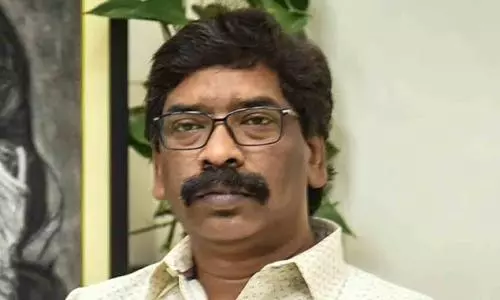
LDF stance on liquor policy ambiguous
text_fieldsThe Supreme Court bench headed by Chief Justice T S Thakur on December 15 last yearhad ordered a ban on liquor sales on the state and national highways across the country from March 31, 2017.
The plea filed by the Kerala government in the apex court demanding a clarification on the order was withdrawn after it stirred a controversy. One of the main demands by the state government was the exemption of beer, wine and toddy from the definition of hard liquor. The minimum alcohol content was the justification given for not considering them as alcoholic beverages. The ban shouldn’t be applied to the beverage outlets that function in the municipalities and liquor shops of the civil supplies corporations.A time period until April 2018 should be allowed for shifting the outlets from highways to new spots. The loss of revenue should be compensated and measures should be taken for the rehabilitation of the employees who would lose jobs due to the shutting down of liquor outlets. So goes the demands of the state government.
Whether the clarification is actually required, in the Supreme Court order or the in the liquor policy of the state government, is the relevant skepticism here. The liquor policy of the previous UDF government was a step by step prohibition of liquor in the state promising a total liquor ban within ten years.As part of the first phase of implementation, liquor was banned in all the hotels up to four star and a ten per cent of foreign liquor outlets of the beverages corporation under the state government was shut down. Grave allegations like accepting bribes from the liquor owners thereby diluting the government’s stringent liquor policy was one of the main reasons for the collapse of the OommenChandy government in the assembly election.
The Left alliance however, said that they believed in liquor abstinence instead of total prohibition. But the government has not come up with an unambiguous and transparent liquor policy even after nine months in power. The Finance Minister, the Excise Minister and others concerned have hinted that the government’s stance on the matter would be made clear in the next budget. The Left government that was forced to withdraw its request after initially demanding more clarity on the SC order, should first clearly inform the people about its policy.
There have been a series of flip-flops on the part of the LDF over the liquor policy. The stand that liquor abstinence was the way to go and not total prohibition leads to confusion and scepticisms. Those who abstain from consuming liquor cannot be compelled in any way to devour it. If the effective way for liquor abstention was making it unavailable, then steps should be taken to curb the availability of liquor. The verdict of the apex court in December is therefore welcome in this regard. Drinking is the main reason for the escalating road accidents in the country. If the sale of alcohol is banned at least along the state and national highways, the number of loss of human lives could be drastically cut down. The court order is the consequence of this accurate analysis.Beer, wine and toddy should be proved as non-intoxicants, if they have to be exempted from the ban.
But the reality is much grim. Kerala stands first in liquor consumption in India. The majority of those consuming liquor buy local toddy, wine and beer and not the expensive foreign brands. If these are excluded from the classification of hard liquor, the ban would be a mockery. The dangerous chemicals used to harden alcohol and wine are copiously available as well. Since the large part of the state and national highways pass through the corporations and municipalities, exempting them from the ban would further weaken the proposal. The state government’s apparent loss of revenue is justifiable. But studies and experiences prove that it’s trivial when compared to the losses caused by liquor tragedies.
Therefore the liquor policy of the present government should be to cut down the production, sale and availability of liquor as much as possible in order to ensure public welfare, peace in families and wellbeing of future generations. Else the Pinarayi government should take extreme measures like withdrawing the liquor ban implemented by the EMS government in 1967. It would then ensure huge revenue for the government, support of the alcoholics, bulky donations by the abkaris and monthly toll for the leaders.
At the same time, it could face severe opposition from the housewives who desire peace, the anti-liquor outfits and religious leaders and organisations. Let the government make clear its stand on liquor policy carefully analyzing the pros and cons. The present uncertainty and evasion isn’t expected of a steadfast government.























